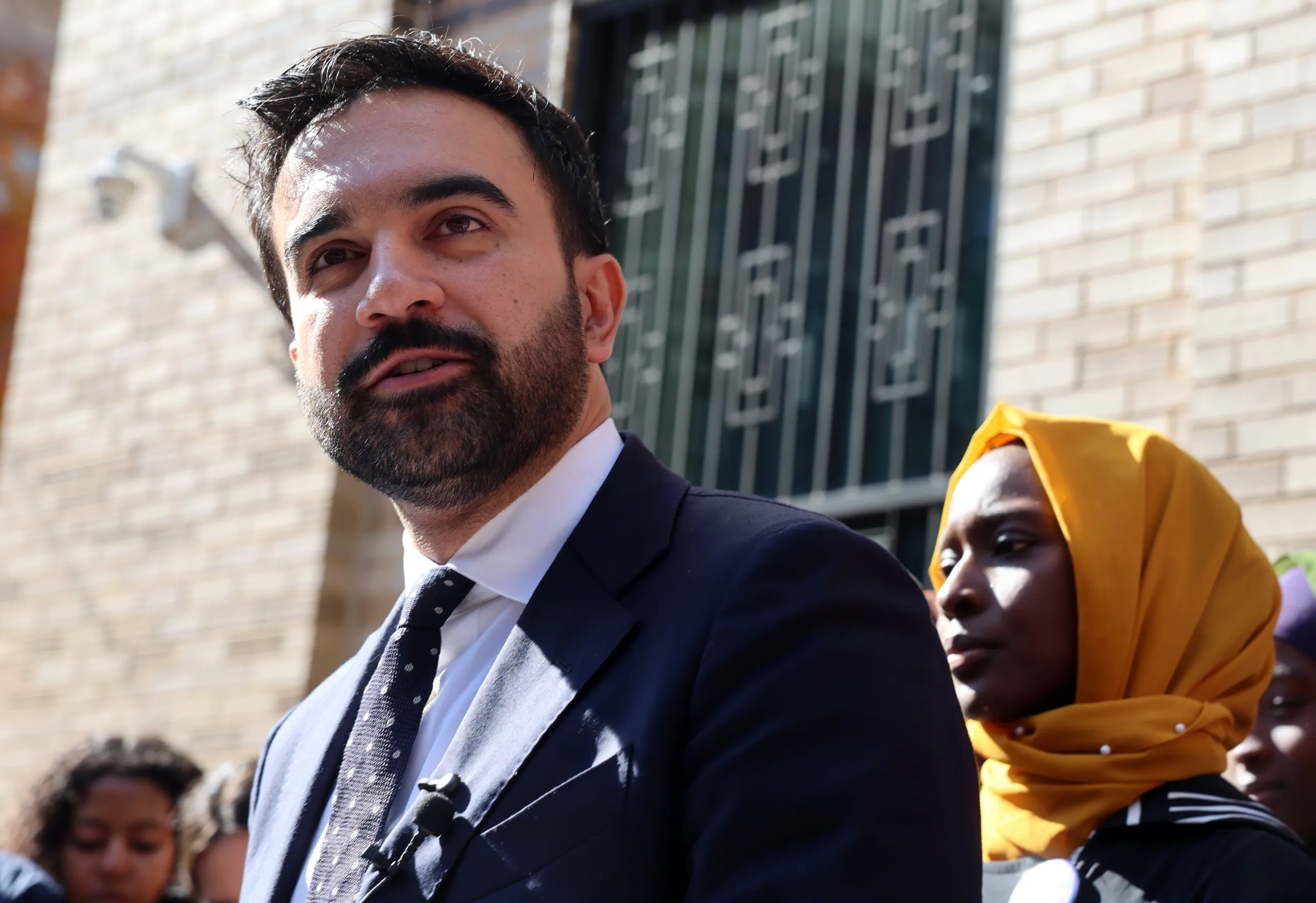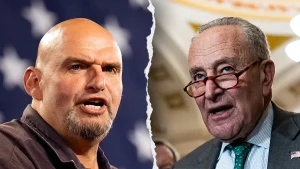A new controversy is taking shape in Washington, this time surrounding New York City’s incoming mayor — and it’s already drawing federal attention before he’s even taken office.
Just days after Zohran Mamdani’s historic win in the city’s mayoral race, questions about his eligibility, campaign funding, and citizenship have begun circulating among lawmakers, watchdogs, and legal experts. The outcome of those inquiries could determine whether Mamdani’s transition to power proceeds smoothly — or becomes one of the most contentious in modern New York history.
Mamdani, a 34-year-old Democratic socialist, made headlines around the world after becoming New York’s first Muslim and first South Asian mayor-elect. He defeated former Governor Andrew Cuomo by nearly 10 percentage points, riding a wave of grassroots support that drove the city’s largest voter turnout in decades.
But as celebrations continued across the city, a different reaction emerged in Washington. Several Republican leaders signaled plans to examine legal pathways to challenge Mamdani’s eligibility and even prevent him from being sworn in, citing a range of allegations — some new, others long disputed.
Early Challenges to Mamdani’s Election
Among the most vocal critics is Representative Andy Ogles (R-TN), who has urged federal officials to review Mamdani’s citizenship record. In a late-October statement, Ogles alleged that the mayor-elect may have “lied on his naturalization documents,” calling for his citizenship to be revoked if any evidence of wrongdoing is found.
“The American naturalization system requires any alignments with communism or terrorist activities to be disclosed,” Ogles said. “If the information is confirmed, put him on the first flight back to Uganda.”
Ogles has also described Mamdani as a “communist who has publicly embraced a terroristic ideology” — a claim that has not been substantiated by any official investigation or public record.
To date, no credible evidence has emerged to suggest that Mamdani misrepresented himself during his naturalization process. Revoking U.S. citizenship, a process known as denaturalization, can only be done by judicial order after a formal legal proceeding.
Still, the rhetoric surrounding the issue is intensifying, underscoring how sharply divided Washington has become over Mamdani’s election.
Campaign Finance Allegations Surface
While lawmakers continue debating his citizenship, a separate matter has now reached federal and local prosecutors.
The Coolidge Reagan Foundation, a conservative campaign finance watchdog, filed two criminal referrals last week urging the Department of Justice and Manhattan District Attorney Alvin Bragg to investigate alleged violations involving Mamdani’s campaign donations.
According to the group, the mayor-elect’s campaign “showed a systematic failure to comply” with state and federal rules after allegedly accepting funds from foreign contributors.
Their complaint cites a New York Post report claiming Mamdani’s campaign received roughly $13,000 in contributions from at least 170 individuals living outside the United States, including one from his mother-in-law in Dubai.
“These are not isolated incidents or clerical errors,” said Dan Backer, president of the Coolidge Reagan Foundation. “This was a sustained pattern of foreign money flowing into a New York City mayoral race, which is a clear violation of both federal law and city campaign finance rules.”
The Federal Election Campaign Act strictly prohibits candidates from “accepting or receiving” donations from non-U.S. citizens in any federal, state, or local election. Violations can result in significant fines and even prison time.
A Closer Look at the Complaints
The watchdog’s filings recommend that prosecutors examine contributions originating from countries including Australia, Turkey, France, Canada, and Germany, among others.
Backer said the issue “undermines the integrity of the democratic process,” regardless of whether the violations occurred through negligence or intent.
Mamdani’s campaign has reportedly returned about $9,000 in donations from international contributors since the allegations were made public. Campaign representatives have not issued an extensive public statement, but sources close to the team say they believe the contributions were made in error and were quickly refunded upon discovery.
Legal and Political Uncertainty Ahead
Whether these allegations amount to criminal wrongdoing remains uncertain. Election law experts note that many campaign finance cases end in civil settlements or administrative fines rather than criminal prosecutions, particularly if the violations are found to be unintentional.
Still, the combination of citizenship scrutiny and financial allegations has created a storm of speculation around the mayor-elect — and fueled partisan tensions in both Washington and New York.
In recent days, senior White House officials have declined to comment on the situation, while Republican members of Congress continue to press for investigations.
“It’s clear that there are people in Washington who don’t want to see him take office,” said a Democratic strategist familiar with the matter. “But it’s equally clear that so far, the claims against him haven’t been backed up by any verifiable evidence.”
Reactions Across the Political Spectrum
Supporters of Mamdani have characterized the growing wave of scrutiny as politically motivated. They point to the timing of the allegations — coming just days after his victory — as evidence of an attempt to delegitimize the city’s voters.
Progressive groups have rallied behind him, saying the investigations are a form of retaliation for his outspoken positions on housing, immigration, and policing.
Conservative critics, meanwhile, argue that the questions are legitimate and must be answered before Mamdani assumes one of the most powerful municipal offices in the country.
“There’s a responsibility to ensure that anyone holding public office is fully compliant with the law,” said a Republican staffer on Capitol Hill. “That’s not about politics — that’s about trust.”
Historical Context
Legal challenges to elected officials taking office are rare but not unprecedented. In recent decades, disputes over campaign finance violations and eligibility have occasionally delayed inaugurations or prompted investigations by ethics committees.
However, experts note that such cases often depend on clear, verifiable evidence — and that political accusations alone carry little legal weight.
“Denaturalization and disqualification are extraordinary measures,” said one constitutional attorney based in Washington. “They require more than suspicion or rhetoric. The courts demand proof.”
For now, Mamdani remains set to take office in January. Unless formal legal action is filed, the certification of his election results will proceed as scheduled.
What Comes Next
The weeks ahead will determine whether the controversy deepens or fades. The Justice Department and Manhattan District Attorney’s Office have not confirmed whether they will act on the Coolidge Reagan Foundation’s referrals.
For Mamdani, who ran on a message of inclusion and reform, the early turbulence of his post-election period has already become a defining test.
Supporters say it will show whether a new kind of leadership can withstand old political pressures. Critics say it will test whether transparency and accountability still matter in an era of partisan loyalty.
Either way, the spotlight on New York’s mayor-elect is unlikely to dim anytime soon.

Emily Johnson is a critically acclaimed essayist and novelist known for her thought-provoking works centered on feminism, women’s rights, and modern relationships. Born and raised in Portland, Oregon, Emily grew up with a deep love of books, often spending her afternoons at her local library. She went on to study literature and gender studies at UCLA, where she became deeply involved in activism and began publishing essays in campus journals. Her debut essay collection, Voices Unbound, struck a chord with readers nationwide for its fearless exploration of gender dynamics, identity, and the challenges faced by women in contemporary society. Emily later transitioned into fiction, writing novels that balance compelling storytelling with social commentary. Her protagonists are often strong, multidimensional women navigating love, ambition, and the struggles of everyday life, making her a favorite among readers who crave authentic, relatable narratives. Critics praise her ability to merge personal intimacy with universal themes. Off the page, Emily is an advocate for women in publishing, leading workshops that encourage young female writers to embrace their voices. She lives in Seattle with her partner and two rescue cats, where she continues to write, teach, and inspire a new generation of storytellers.









